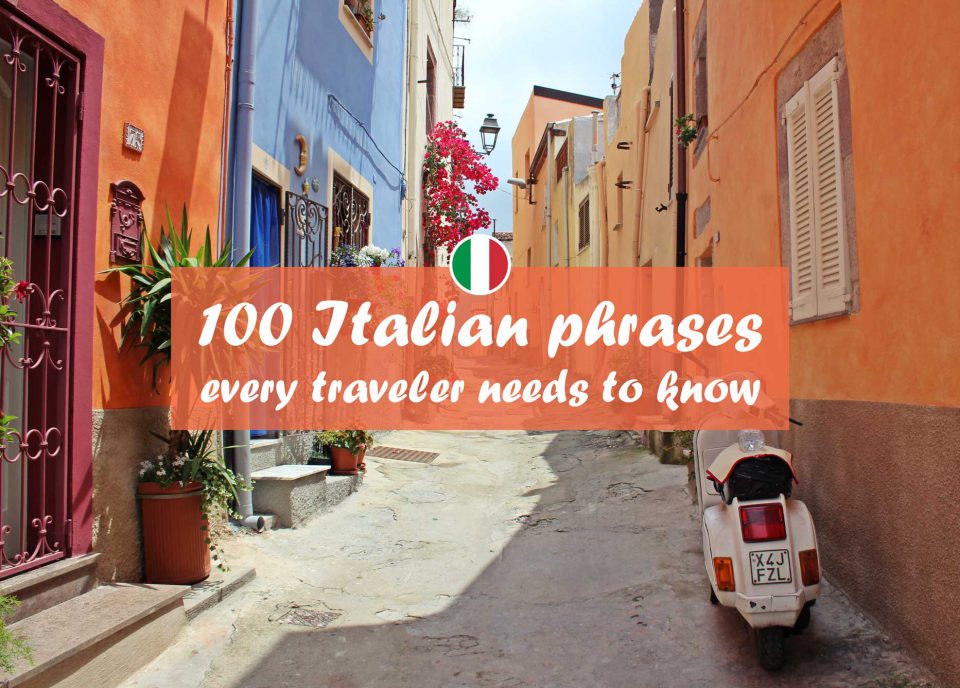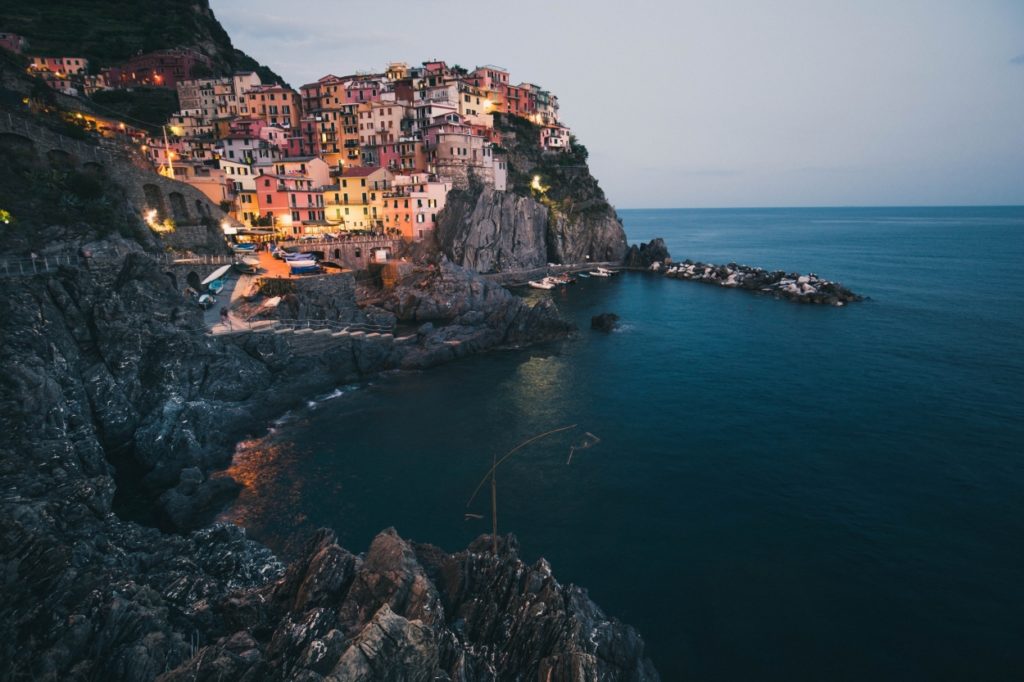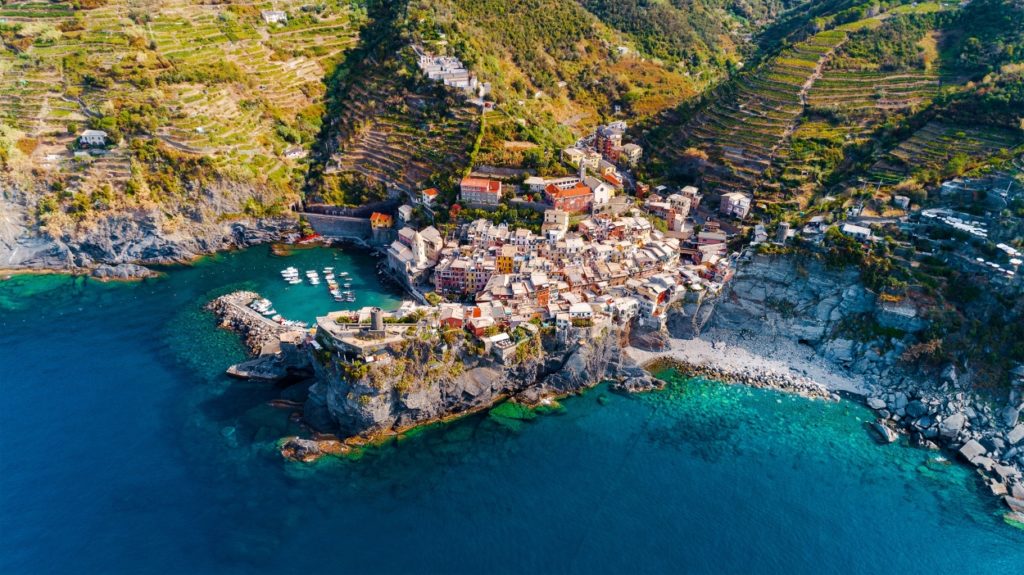Italian Numbers Made Easy – Count to 1000 and Beyond in Italian
From zero to cento, mille and beyond, let’s see how fast can you master the Italian numbers. It’s easier than you think!
Planning a long-awaited vacation to Italy? Learn these 100+ Italian phrases now and take your traveling experience to the next level.

Oh, Italy! The land of Romeo and Juliet, the land of incredible museums, breathtaking coastal cities, of yummy pasta and pizza, the land you must visit at least once in your life. Yep, that is Italy! A dream of love. And to enjoy it to the fullest, you must explore at least a tiny bit of its beautiful language – la lingua Italiana (“the Italian language”). Because nothing is as genuine as a traveling experience where you’re talking to the locals in their mother tongue. Therefore, let’s help you get ready for your Italian trip with these 100+ Italian phrases every traveler needs to know. And we are not talking about any phrases, but Italian phrases with the English translation.
Italian greetings should always be on top of your list of priorities when packing your bags for a trip to Italy. The Italian culture places a big emphasis on greetings, introductions, and respect towards the elders. Do you remember Il Padrino (“The Godfather”)? Well, that scenario wasn’t entirely fictitious. In many cultures around the world, gli anziani della famiglia (“the elders of the family”) are regarded as wise heads of the family responsible for taking the most important decisions. So here are the most important Italian greetings you should know as a traveler:

Emergencies are not necessarily something we expect to happen when traveling. We always associate visiting new places with pleasant feelings. However, emergencies do happen sometimes whether we like it or not. So knowing how to ask for help in Italian may come in handy while traveling. Especially if you decide to travel to remote areas where the locals don’t really speak English. Make sure you learn these key Italian phases by heart because you know what they say: it’s always better to be safe than sorry.
Food is a crucial part of a trip to Italy. No one – and I mean not even a single soul, not even Arya Stark – leaves Italy without indulging on mountains of pizza, pasta and gelato. So here’s how to order drinks or food in Italian restaurants:

Looking for the perfect accommodation can be a real headache sometimes. Well, imagine you did find it, but the hosts only speak Italian. How will you deal with that? Some basic Italian would surely be useful in this situation.
Going out is probably one of the best ways to explore and get to know new cultures. The same places you visited during the day may reveal themselves differently during the night. Take Fontana di Trevi for example. Nothing is as majestic as this world-famous Baroque fountain at night.

Italy is all about belleza (“beauty”) and amore (“love”). Everything good is bello (“beautiful”) in Italy. Even the Italian language is considered passionate. Italians don’t just speak Italian. They almost sing it. Thus it’s hard not to fall in love in Italy. Are you traveling alone? All the better! Here are the Italian phrases about love that will make your ears rejoice:

Wherever you go in the world, the days of the week and the numbers always fall into the category of absolutely essential expressions. It’s only a matter of time until you’ll make use of them. So seize the opportunity and memorize them now.
Days of the week in Italian
P.S.: Don’t forget that the days of the week in Italian are not written with a capital letter.
| 1 - uno | 11 - undici | 30 - trenta |
|---|---|---|
| 2 - due | 12 - dodici | 40 - quaranta |
| 3 - tre | 13 - tredici | 50 - cinquanta |
| 4 - quattro | 14 - quattordici | 60 - sessanta |
| 5 - cinque | 15 - quindici | 70 - settanta |
| 6 - sei | 16 - sedici | 80 - ottanta |
| 7 - sette | 17 - diciassette | 90 - novanta |
| 8 - otto | 18 - diciotto | 100 - cento |
| 9 - nove | 19 - diciannove | 1.000 - mille |
| 10 - dieci | 20 - venti | one million - un milione |
And… this is it! These are the 100+ essential Italian phrases every traveler needs to know. Bookmark this article and make sure you get your Italian travel phrases straight while in Italy. Goditi la tua vacanza! (“Enjoy your holiday!”)
Do you want to see these Italian phrases in action in real-life conversations? Get Mondly, the award-winning language learning app that will help you speak Italian as if you were Tuscany-born.
It can be really tricky to master the Italian way of speaking if you don’t actively live in Italy. But with Mondly you’ll have access to a unique, fast and highly efficient learning method that allows you to learn Italian naturally with practical topics, authentic conversations, and bite-sized Daily Lessons.
Start using Mondly for free on your computer or download the app and learn Italian fast anytime, anywhere.

From zero to cento, mille and beyond, let’s see how fast can you master the Italian numbers. It’s easier than you think!

Happy flirting! Ready for an exclusive list of hilariously cheesy Italian pick up lines? 😏

Do you want Italians to take you as one of their own? Use these expressions. 🤌